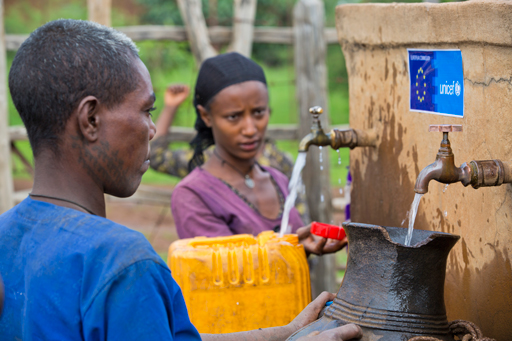9.3.2 Non-governmental organisations/civil society organisations
Non-governmental organisations (NGOs) and civil society organisations (CSOs) play an important role as stakeholders in the OWNP. Box 9.1 explains these two terms in more detail. In the stakeholder categories in Section 9.1, these are represented in the associated and collaborating stakeholder groups.
Box 9.1 Terminology explained: NGOs, CSOs, and other development partners
There are many terms associated with development assistance that have quite similar meanings and their use may be confusing. As well as development partners, you will have already heard of NGOs and CSOs. These two abbreviations are frequently used interchangeably and, in many circumstances, can be understood to mean the same thing.
Non-governmental organisation (NGO), in its broadest sense, means any organisation that is not part of a government. NGOs are non-profit organisations that typically ‘seek to influence the policy of governments and international organisations and/or to complement government services such as health and education’ (WHO, n.d.).
The term civil society organisation (CSO) is applied to organisations that are not commercial, not part of government, and not based on family. CSOs are groups of people who organise themselves to pursue shared interests. Examples include community-based organisations, village associations, environmental groups, women’s rights groups, farmers’ associations, faith-based organisations, labour unions, co-operatives, and professional associations (Advisory Group on Civil Society and Aid Effectiveness, 2008).
You can see that these two definitions are very similar. Not part of government and non-profit-making are common to both and, as noted above, for most purposes can be considered to be synonymous (have the same meaning).
There are some further distinctions to be aware of. NGOs may be local, national or international, depending on their geographical area of operation and influence. Well-known international NGOs (INGOs) include Plan International, WaterAid, and World Vision International. INGOs often also have country teams as well as international orginasations, e.g. Plan Ethiopia, WaterAid Ethiopia and World Vision Ethiopia.
NGOs like these raise most of their funds in industrialised countries from donations by individuals and businesses. Through publicity campaigns and fund-raising events, the NGOs raise awareness of the need for financial aid in the developing world and people donate money to be disbursed as development assistance.
Other terms you may come across are ‘bilateral’ and ‘multilateral’. Bilateral means two sides. Bilateral aid donors, sometimes known as bilaterals, are departments or agencies of national governments which donate funds to another country. For the OWNP, bilateral donors include DfID (UK), USAID, JICA (Japan), and the governments of Italy, the Netherlands, and Norway amongst others.
Multilateral institutions, or simply multilaterals, include the World Bank, the African Development Bank, the United Nations and its agencies such as UNICEF and UNESCO, and the World Health Organization (WHO). Note that sometimes all aid organisations including bilaterals and multilaterals may be labelled as NGOs even though, strictly speaking, some of them are not ‘non-governmental’.
NGOs work in WASH activities throughout the country. They play an important role in delivering water and sanitation services, hygiene promotion, piloting new approaches, reaching remote areas and groups and supporting learning and knowledge sharing. The valuable contribution of NGOs is recognised in the WASH Implementation Framework, where NGO-managed projects are included as one of the four implementation approaches.

NGOs working with WASH activities have formed the Water and Sanitation Forum (WSF), which meets regularly. The WSF has an executive body and a secretariat. WASH NGOs are also represented on a number of Task Forces in the MoWIE, the MoH and the MoE, as well as in the membership of the Water Sector Working Group (see next section). In the regions, WASH NGOs collaborate with sector bureaus by participating in Technical Working Groups and forming WASH Forums to coordinate planning and implementation.
NGOs play a number of important roles in OWNP implementation. NGOs participate in sector reviews and evaluations such as the semi-annual Joint Technical Review (JTR), an annual Multi-Stakeholder Forum (MSF), and regular meetings of the Forum for Learning on Water and Sanitation (described in more detail in Study Session 11). WASH NGOs also implement WASH projects and undertake studies, evaluations and other activities for international multilateral and bilateral organisations such as the European Union, UNICEF, DFID and others at all levels, from federal level to communities.
9.3.1 Donors
